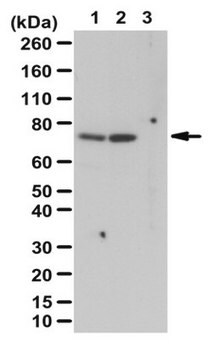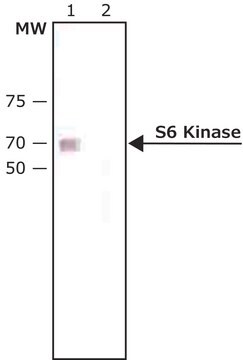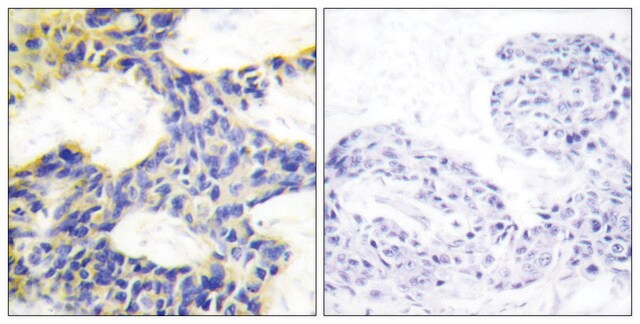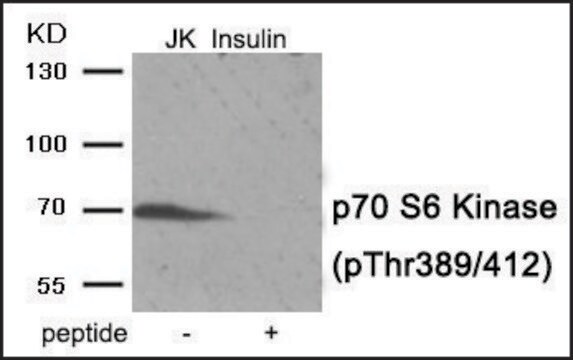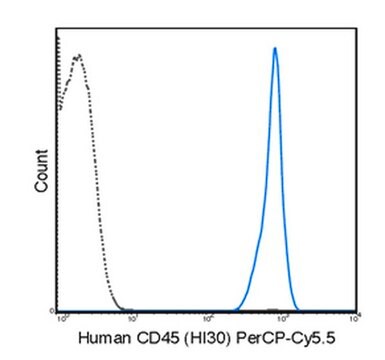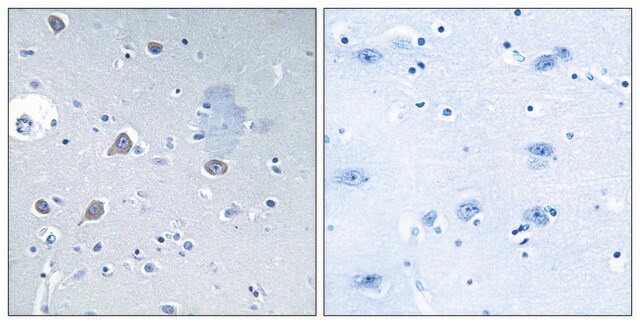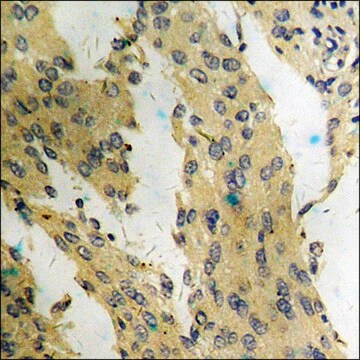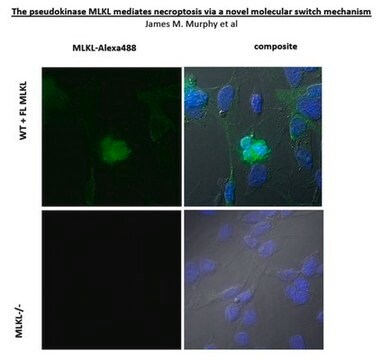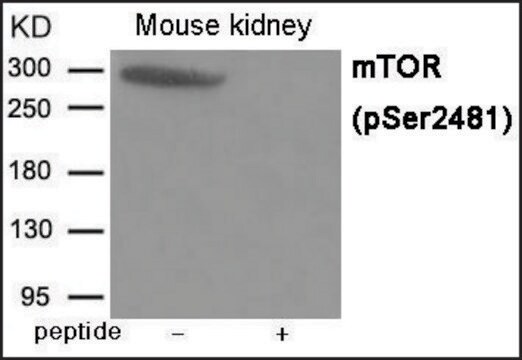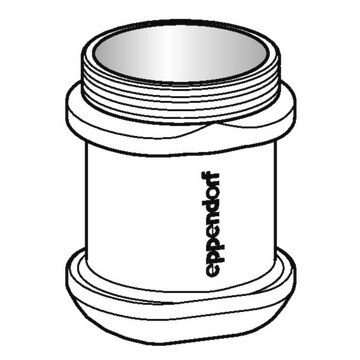MABS82
Anti-phospho-p70 S6 Kinase (Thr389) Antibody, clone 10G7.1
clone 10G7.1, from mouse
Synonym(s):
Ribosomal protein S6 kinase beta-1, S6K-beta-1, S6K1, 70 kDa ribosomal protein S6 kinase 1, Short name=P70S6K1, p70-S6K 1, Ribosomal protein S6 kinase I, Serine/threonine-protein kinase 14A, p70 ribosomal S6 kinase alpha, p70 S6 kinase alpha, p70 S6K-alp
About This Item
Recommended Products
biological source
mouse
Quality Level
antibody form
purified antibody
antibody product type
primary antibodies
clone
10G7.1, monoclonal
species reactivity
human, mouse
technique(s)
immunocytochemistry: suitable
western blot: suitable
isotype
IgG2aκ
NCBI accession no.
UniProt accession no.
shipped in
wet ice
target post-translational modification
phosphorylation (pThr389)
Gene Information
human ... RPS6KB1(6198)
General description
Specificity
Immunogen
Application
Signaling
Cell Cycle, DNA Replication & Repair
Quality
Western Blot Analysis: 1 µg/mL of this antibody detected p70 S6 Kinase on 10 µg of untreated and serum treated NIH/3T3 cell lysates.
Target description
Linkage
Physical form
Storage and Stability
Analysis Note
Untreated and serum treated NIH/3T3 cell lysates
Other Notes
Disclaimer
Not finding the right product?
Try our Product Selector Tool.
Storage Class Code
12 - Non Combustible Liquids
WGK
WGK 1
Flash Point(F)
Not applicable
Flash Point(C)
Not applicable
Certificates of Analysis (COA)
Search for Certificates of Analysis (COA) by entering the products Lot/Batch Number. Lot and Batch Numbers can be found on a product’s label following the words ‘Lot’ or ‘Batch’.
Already Own This Product?
Find documentation for the products that you have recently purchased in the Document Library.
Our team of scientists has experience in all areas of research including Life Science, Material Science, Chemical Synthesis, Chromatography, Analytical and many others.
Contact Technical Service